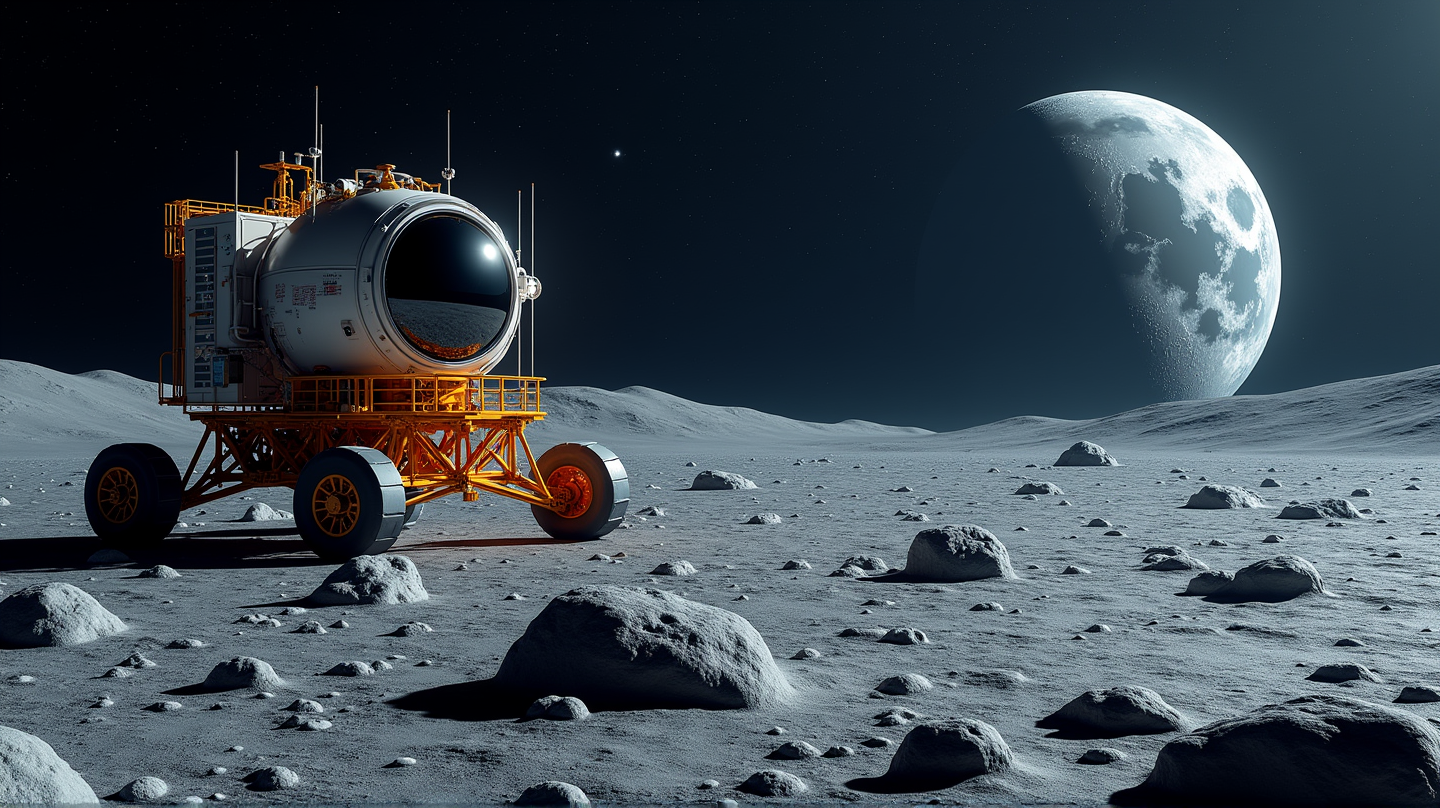Taiwan Elevates Lunar Ambitions with Japanese Collaboration
Taiwan partners with Japan's ispace to send scientific instruments to the Moon, highlighting international cooperation in space exploration.

The Taiwan Space Agency (TASA) and Japanese space startup ispace have announced a groundbreaking partnership set to propel Taiwan into new heights in space exploration. This collaboration marks a significant leap for Taiwan’s space program as it ventures into a lunar mission scheduled for 2028. This partnership reflects the global shift towards international collaboration in space initiatives.
An Ambitious Leap Forward
Taiwan’s collaboration with ispace, worth a remarkable US$8 million, is a testament to the island’s commitment to advancing its technological prowess in space. The mission, dubbed Mission 4 by ispace, will carry Taiwan’s cutting-edge Vector Magnetometer and Ultraviolet Telescope to the Moon. This joint venture signifies a potent fusion of Taiwanese scientific innovation with Japan’s adeptness in space logistics.
Building on a Solid Foundation
The partnership isn’t without precedent. Taiwan and ispace’s previous collaboration during Mission 2 in 2025 resulted in significant data collection from the Deep Space Radiation Probe, a project championed by Taiwan’s National Central University. This mission laid a strong foundation for ongoing cooperation between academia, industry, and government across borders, demonstrating the power of trilateral endeavors.
The March Towards the Lunar Surface
Founded in 2010, ispace has rapidly emerged as one of Asia’s torchbearers in private aerospace. Despite initial challenges with their first two missions in achieving a soft landing, ispace has demonstrated unparalleled skill in maneuvering lunar orbits and spacecraft guidance. These technical triumphs pave the way for Taiwan’s aspirational lunar objectives, positioning it prominently in the new space race.
A Multinational Endeavor with a Vision
Mission 4 isn’t merely a scientific endeavor; it embodies the spirit of global cooperation—melding scientific collaboration with commercial acumen. The mission will not only focus on Taiwan’s instruments but will also delve into lunar water exploration, a critical part of sustaining long-term lunar infrastructure. This aligns with global efforts to harness lunar resources for future space exploration.
Shifting Dynamics in the Space Race
As worldwide interest in lunar exploration peaks, this alliance between Taiwan and Japan underscores a broader trend. The new space race isn’t confined to major spacefaring nations but includes agile private companies like ispace, acting as crucial facilitators of cross-border exploration and scientific discovery. “According to DIGITIMES Asia,” such collaborations highlight the evolving dynamics where smaller, nimble entities make significant global contributions.
This historic partnership shines a spotlight on Taiwan’s burgeoning space ambitions and Japan’s progressive private sectors. Together, they’re pioneering a path that promises to enrich our understanding of the universe while heralding an era of unprecedented international cooperation in space exploration.

